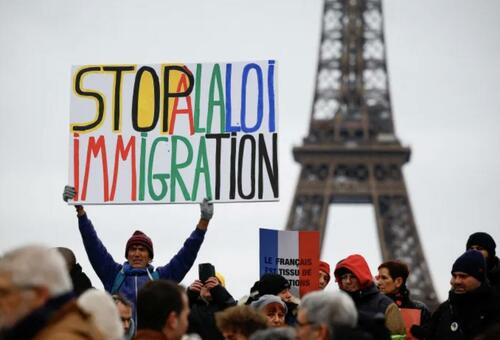
„Vicious Circle”: Immigration Is Costing France 3.4% Of Its GDP
Immigration has not delivered the economic benefits long promised in France and may, in fact, be dragging down the country’s economy, according to a report by the Observatory of Immigration and Demography (OID), according to Le Figaro.
Rather than boosting growth, the think tank claims immigration is costing France the equivalent of 3.4 per cent of its GDP due to a significant mismatch between the taxes immigrants contribute and the services they consume.
Le Figaro reports that, according to OID, taxes collected from immigrants cover only 86 per cent of their fiscal cost, creating what it calls a “budget deficit.” This imbalance is largely due to low employment rates among immigrants: only 62.4 per cent of working-age immigrants in France are employed—one of the lowest rates in the European Union, just ahead of Belgium. The French native population, by comparison, has a 69.5 per cent employment rate.
The OID argues that if immigrants were employed at the same rate as native-born citizens, French GDP would be 3.4 per cent higher, and taxable income would rise by 1.5 percentage points.
“Immigration maintains a vicious circle which harms employment and the French economy: it aggravates the structural problems of employment in France, degrades public accounts and indirectly penalizes exposed sectors of the economy,” said Nicolas Pouvreau-Monti, director of the Observatory.

He acknowledged that the public debate often focuses on short-term labour needs in industries like hospitality, construction, and food service, but warned this is a narrow perspective. “The short-term vision prevents us from thinking about the best way to make these professions more attractive for people looking for work,” he said.
Pouvreau-Monti also criticized the system for importing mainly low-skilled workers rather than high-skilled migrants who could drive innovation. He warned that the economic drag created by this model forces the government to raise taxes on businesses, compounding the economic strain.
“In other words, encouraging immigration to avoid shortages in certain sectors in tension amounts to sacrificing the growth of our strategic sectors for the benefit of only a few corporate interests,” he said.
According to the report, a major driver of France’s immigration pattern is family reunification, or chain migration, which prioritizes familial ties over professional skills. As Pouvreau-Monti put it, “finding work is more difficult for an immigrant when professional integration is not at the root of the decision to emigrate to France.”
Worryingly, this economic inactivity appears to extend into the next generation. Drawing on OECD data, OID noted that 24 per cent of young people born in France to immigrant parents were not in employment, education, or training (NEET) during 2020–2021. This was the second-highest NEET rate in Europe and the broader Western world, just behind Belgium.
OID links this trend to rising ethnic self-segregation, arguing that failure to integrate economically is contributing to increased sectarianism in France and Belgium, in contrast to other European nations.
The report adds to growing skepticism across Europe over the idea that mass migration is an economic benefit. Even Britain’s Labour Prime Minister Sir Keir Starmer recently stated that the assumption that immigration automatically leads to economic growth has been “tested” and “doesn’t hold.” Starmer added a stark warning: unless migration policy is reevaluated, Britain risks becoming “an island of strangers.”
Tyler Durden
Thu, 06/26/2025 – 02:45











